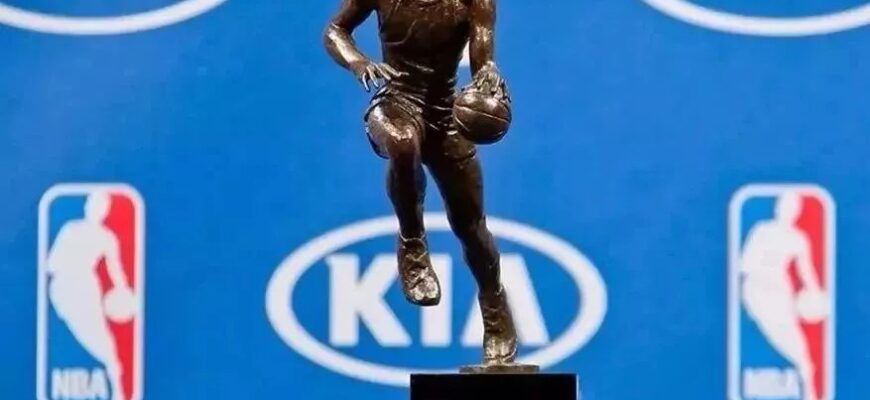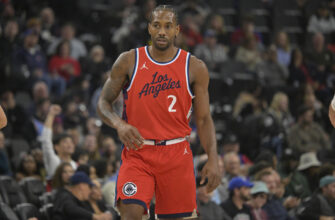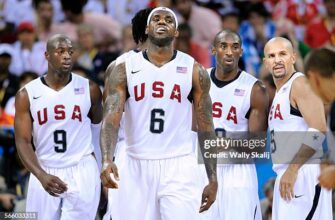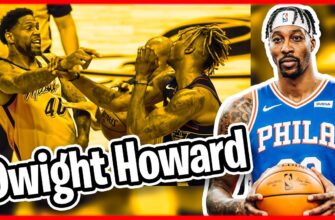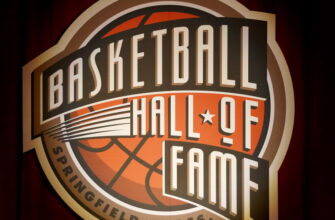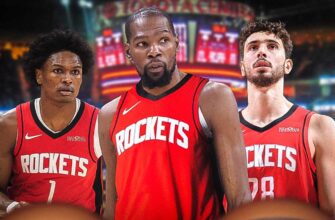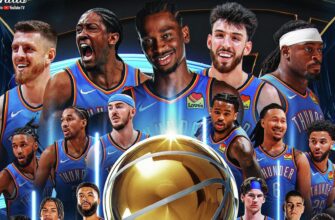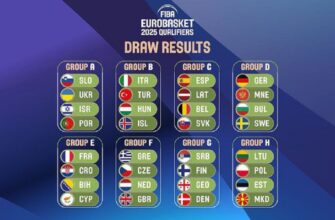This Tuesday, I finalized my official NBA awards ballot, casting my votes for the league`s most prestigious individual honors. These include the seven major end-of-season awards: Most Valuable Player, Defensive Player of the Year, Coach of the Year, Rookie of the Year, Sixth Man of the Year, Most Improved Player, and Clutch Player of the Year. Additionally, I voted for the All-NBA, All-Defense, and All-Rookie teams.
Below is a breakdown of my ballot and the reasoning behind each selection.
Most Valuable Player
-
Shai Gilgeous-Alexander, Oklahoma City Thunder
-
Nikola Jokic, Denver Nuggets
-
Giannis Antetokounmpo, Milwaukee Bucks
-
Jayson Tatum, Boston Celtics
-
Jalen Brunson, New York Knicks
Almost every NBA season features a handful of players deserving of the MVP award. This year, the race was exceptionally close, extending to the very last day between Shai Gilgeous-Alexander and Nikola Jokic, both undeniably elite players who delivered outstanding seasons.
Gilgeous-Alexander led the league in scoring with 32.7 points per game, while maintaining a 51.9% field goal percentage. His performance propelled the Thunder to become only the seventh team in NBA history to achieve at least 68 wins. Jokic, on the other hand, had a historically significant statistical season, ranking in the top three for points (29.6), rebounds (12.7), and assists (10.2), with impressive shooting splits of 57.6% from the field and 41.7% from three-point range.
The debate between Gilgeous-Alexander and Jokic was ongoing for weeks. A quote from former Nuggets coach Michael Malone, prior to his dismissal, resonated with me. Malone stated, “If you were unaware of Nikola`s three MVP titles and I presented Player A and Player B on paper… he would win unanimously.”
Malone’s perspective was understandable. However, securing a fourth MVP in five years—a feat only accomplished by LeBron James and Bill Russell—required Jokic to reach an extraordinary level, which he did.
Yet, considering the race a near tie, as many in the media, players, coaches, and executives believe, the advantage should lean towards the leader of what could be considered the most dominant regular-season team in NBA history.
The Thunder set a new record for point differential, exceeding opponents by over 1,000 points, and by 12.7 points per 100 possessions. They achieved 68 wins despite Chet Holmgren missing 50 games and significant absences from summer acquisitions Isaiah Hartenstein and Alex Caruso.
The Nuggets performed nearly 20 points better with Jokic on the court. However, while Oklahoma City might have a deeper roster around Gilgeous-Alexander, the Thunder’s performance dropped by 11.5 points per 100 possessions when he was off the court. Without Gilgeous-Alexander, the league’s top offense would rank 22nd.
For the remainder of the MVP ballot, Antetokounmpo was a clear third choice, marking his seventh consecutive season in the top four. While Tatum was in consideration for third at one point, Antetokounmpo’s strong finish in the last couple of months, especially after Damian Lillard`s injury, pushed him ahead.
A significant gap existed between Tatum and other players vying for the fifth spot, ultimately narrowing down to Brunson and Donovan Mitchell. Brunson secured the fifth position, largely due to his clutch performances, which might earn him further accolades.
Defensive Player of the Year
-
Ivica Zubac, LA Clippers
-
Evan Mobley, Cleveland Cavaliers
-
Jaren Jackson Jr., Memphis Grizzlies
Leading up to the All-Star break, the DPOY discussion primarily revolved around who would come in second to Victor Wembanyama. However, Wembanyama`s season-ending diagnosis of deep vein thrombosis opened up the race. Several players emerged as contenders, including the three listed, along with Rudy Gobert, Draymond Green, Dyson Daniels, Amen Thompson, and Luguentz Dort, all potentially receiving votes, and possibly first-place selections.
The final decision came down to Zubac and Mobley. The Clippers have established themselves as a top defensive team, ranking third in defensive rating. Zubac has been central to their defense, allowing the lowest shot quality as the primary defender among players contesting at least 700 shots this season, according to GenuisIQ data. Mobley, conversely, is arguably the league’s most versatile defender, uniquely capable of defending guards, forwards, and centers for at least 900 half-court possessions this season.
Ultimately, Zubac gained the edge. He played nine more games and approximately 500 more minutes than Mobley. His formidable presence in the paint was crucial to the Clippers` top-five defensive rating, which narrowly surpassed that of the Cavaliers, anchored by Mobley.
Similar to Mobley, Jackson’s versatility is a key asset. Memphis` defense significantly weakens by over four points per 100 possessions when he is off the court. Jackson is one of only two players, alongside Mobley, to defend guards, forwards, and centers for at least 800 possessions this season, and he is the only player to record at least 75 steals and 100 blocks.
Coach of the Year
-
Kenny Atkinson, Cleveland Cavaliers
-
J.B. Bickerstaff, Detroit Pistons
-
Ime Udoka, Houston Rockets
The top two candidates have been consistent for weeks, though I have wavered between them since mid-March. The Pistons` achievement in more than tripling their win count from last season is remarkable, and Bickerstaff has effectively instilled defensive commitment in his young team.
However, the most challenging leap in the NBA, whether for players or teams, is transitioning from good to great. The Cavaliers moved from being expected to compete for home-court advantage in the first round to securing home court throughout the Eastern Conference playoffs, achieving 64 wins and seeing significant improvement across their roster.
Other coaches deserving of first-place votes include Udoka, who led a team initially projected to contend for a play-in spot to the second seed in the Western Conference, and Tyronn Lue of the LA Clippers. Despite facing uncertainties surrounding Kawhi Leonard`s availability, Lue has guided the Clippers effectively. Lue should certainly receive votes for this award, and it was difficult to exclude him from my ballot.
Rookie of the Year
-
Zaccharie Risacher, Atlanta Hawks
-
Stephon Castle, San Antonio Spurs
-
Jaylen Wells, Memphis Grizzlies
This year`s rookie race differs significantly from last year, where both Wembanyama and Holmgren made substantial impacts and would have been clear winners in almost any season over the past two decades.
This season’s choice narrowed to Castle, who took on a more prominent role in San Antonio, and Risacher, who established a valuable role on a playoff-contending team. I opted for Risacher, the top pick in the previous draft, who has averaged 14 points, shooting 50% from the field and 40% from three-point range since January 1st.
Wells, a second-round pick who became a starter for the playoff-hopeful Memphis Grizzlies, secured the third spot.
Most Improved Player
-
Evan Mobley, Cleveland Cavaliers
-
Ivica Zubac, LA Clippers
-
Austin Reaves, Los Angeles Lakers
I personally question the necessity of this award. In 1986, when the NBA discontinued the Comeback Player of the Year award, then-deputy commissioner Russ Granik stated it was phased out due to the ambiguity in defining its requirements.
A similar issue persists with the Most Improved Player award. Defining “most improvement” and its key metrics remains challenging. It often becomes an award for which numerous players could argue, frequently defaulting to young, high-drafted players who make a significant leap, as noted by Lakers coach JJ Redick.
This season, my ballot reflects this trend, with Mobley at the top. His progression from minimal All-Star consideration last year to an All-NBA caliber player this season makes him a deserving recipient.
Zubac has had an exceptional season for the Clippers on both ends of the court, showing considerable improvement across nearly all statistical categories, most notably in minutes per game, as he has successfully taken on a significantly larger role. Reaves has also excelled, playing a crucial role in the Lakers` second-half surge to become the third seed in the West.
Sixth Man of the Year
-
Payton Pritchard, Boston Celtics
-
Nickeil Alexander-Walker, Minnesota Timberwolves
-
Malik Beasley, Detroit Pistons
This was among the easiest decisions on my ballot. Pritchard has consistently been a top performer for the Celtics, arguably the third most consistent after Tatum and White, providing crucial energy and production off the bench. As a 40% three-point shooter on nearly eight attempts per game, he has been instrumental in numerous Boston victories throughout the season and has been my clear frontrunner for Sixth Man for months.
The remaining two spots were more contested, with Alexander-Walker, Beasley, and Cavaliers players Hunter and Jerome as contenders. Hunter has arguably had his best season, initially with the Hawks and then with the Cavaliers post-trade, improving his shot selection and achieving a career-high 17 points per game.
Jerome`s season is particularly notable, overcoming a near-season-long injury last year to average 12.5 points on 51.6% shooting overall and 43.6% from three-point range.
However, my second and third votes went to Alexander-Walker and Beasley. Alexander-Walker has been a key, often unheralded, player for Minnesota, contributing on both ends of the court, especially when the Timberwolves faced injuries to DiVincenzo and Conley. He shot 38.1% from deep and is a reliable defender capable of closing out games.
My third spot went to Beasley, who ranks seventh in the league in three-point attempts per game and is the only player in the top 20 in attempts to also shoot 40% for the season. Beasley’s career-best season has significantly contributed to Detroit`s improved performance.
Clutch Player of the Year
-
Jalen Brunson, New York Knicks
-
Nikola Jokic, Denver Nuggets
-
Trae Young, Atlanta Hawks
While LeBron James was considered, Brunson, Jokic, and Young emerged as the clear top three in this order. Brunson’s 5.6 clutch points per game this season rank third-highest in the last 25 years among players in at least 20 clutch games. He consistently secured close wins for New York, leading the league in clutch usage rate.
Jokic, consistent across all areas, ranked in the top five for clutch points and assists. Young led in total fourth-quarter points and assists and became the first player since John Stockton in 1997 to record at least 200 fourth-quarter assists in a season.
All-NBA, All-Defense and All-Rookie teams
All-NBA First Team
-
Shai Gilgeous-Alexander, Oklahoma City Thunder
-
Nikola Jokic, Denver Nuggets
-
Giannis Antetokounmpo, Milwaukee Bucks
-
Jayson Tatum, Boston Celtics
-
Jalen Brunson, New York Knicks
All-NBA Second Team
-
Evan Mobley, Cleveland Cavaliers
-
Stephen Curry, Golden State Warriors
-
Donovan Mitchell, Cleveland Cavaliers
-
Anthony Edwards, Minnesota Timberwolves
-
LeBron James, Los Angeles Lakers
All-NBA Third Team
-
James Harden, LA Clippers
-
Cade Cunningham, Detroit Pistons
-
Karl-Anthony Towns, New York Knicks
-
Jalen Williams, Oklahoma City Thunder
-
Jaren Jackson Jr., Memphis Grizzlies
My rationale for the All-NBA First Team aligns with my MVP selections, so I will proceed to the remaining teams.
Mobley`s exceptional season made him a clear choice alongside Mitchell. The continued high-level play of LeBron James and Stephen Curry at their career stages is remarkable.
The final second-team spot went to Edwards, whose improved three-point shooting could be a game-changer in his career.
Harden’s performance, especially in the playoff-clinching game against Golden State, solidified his All-NBA selection. Cunningham, Towns, and Williams were straightforward choices based on their seasons.
The last spot was debated between Haliburton, Jackson, Zubac, and Garland, ultimately going to Jackson for his consistent two-way play.
All-Defense First Team
-
Dyson Daniels, Atlanta Hawks
-
Amen Thompson, Houston Rockets
-
Ivica Zubac, LA Clippers
-
Evan Mobley, Cleveland Cavaliers
-
Jaren Jackson Jr., Memphis Grizzlies
Three of these selections were also on my DPOY ballot. The team composition includes two backcourt and three frontcourt players, mirroring the pre-2023-24 positional format.
Daniels led in steals, and Thompson showcased his defensive versatility, notably limiting Stephen Curry in a recent game.
All-Defense Second Team
-
Derrick White, Boston Celtics
-
Jalen Williams, Oklahoma City Thunder
-
Luguentz Dort, Oklahoma City Thunder
-
Rudy Gobert, Minnesota Timberwolves
-
Draymond Green, Golden State Warriors
Gobert and Green were easy picks due to their consistent defensive excellence. Dort is set to earn his first All-Defense selection for his defensive assignments with Oklahoma City.
The remaining choices were between White, Williams, and Camara, with Williams and White selected for their versatile two-way play and contributions to top Finals contenders.
All-Rookie First Team
-
Zaccharie Risacher, Atlanta Hawks
-
Stephon Castle, San Antonio Spurs
-
Jaylen Wells, Memphis Grizzlies
-
Kel`el Ware, Miami Heat
-
Zach Edey, Memphis Grizzlies
Ware and Edey complete my top five rookies, following my Rookie of the Year picks.
Ware nearly averaged a double-double in the last 2.5 months, and Edey provided a consistent presence for Memphis throughout the season.
All-Rookie Second Team
-
Yves Missi, New Orleans Pelicans
-
Donovan Clingan, Portland Trail Blazers
-
Alex Sarr, Washington Wizards
-
Ryan Dunn, Phoenix Suns
-
Matas Buzelis, Chicago Bulls
Missi, Clingan, Sarr, Dunn, and Buzelis round out the All-Rookie Second Team.

